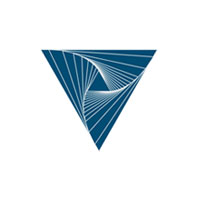Prof. Michael Felderer is the Director of the Institute for Software Technology at German Aerospace Center (DLR) and full professor at the University of Cologne. His fields of expertise and interest include software testing and quality assurance, software architectures, software security, empirical software engineering, research software engineering as well as software and systems engineering for AI, quantum, and simulation technologies. He was associate professor at the University of Innsbruck (Austria), guest professor at the Blekinge Institute of Technology (Sweden) as well as CEO of the academic spin-off QE LaB Business Services. His research is performed in close collaboration with researchers and companies from various domains and directed towards the development and evaluation of efficient and effective methods to improve the quality, trustworthiness and value of software systems and processes. Michael Felderer has co-authored more than 200 publications and received 14 best paper awards. He is recognized by the Journal of Systems and Software (JSS) as one of the twenty most active established Software Engineering researchers world-wide in the period 2013 to 2020.
The DLR Institute for Software Technology is dedicated to providing highly-developed software and computing solutions for advanced engineering applications. Its approach involves a deep dive into the basic research of emerging fields such as Quantum Computing, Digital Twins and AI, coupled with the development and evaluation of specialized software solutions for aeronautics, space, transport, energy, and security at the German Aerospace Center (DLR). A significant portion of the institute’s code is provided as open source.
Selected publications
- Foidl, H., Felderer, M. (2023) An Approach for Assessing Industrial IoT Data Sources to Determine their Data Trustworthiness. Internet of Things, 100735, Elsevier.
- Chrszon, P., Maurer, P., Saleip, G., Müller, S., Fischer, P., Gerndt, A., Felderer, M. (2023) Applicability of Model Checking for Verifying Spacecraft Operational Designs. ACM/IEEE 26th International Conference on Model Driven Engineering Languages and Systems (MODELS 2023), IEEE.
- Steidl, M., Felderer, M., Ramler, R. (2023) The pipeline for the continuous development of artificial intelligence models – Current state of research and practice. Journal of Systems and Software, 199, 111615. Elsevier.
- Foidl, H., Felderer, M., Ramler, R. (2022) Data Smells: Categories, Causes and Consequences, and Detection of Suspicious Data in AI-based Systems. 1st International Conference on AI Engineering (CAIN 2022), pp. 229–239, ACM.
- Kuhrmann, M., Tell, P., Hebig, R., Klünder, J., Münch, J., Linssen, O., Pfahl, D., Felderer M., et al. (2022). What Makes Agile Software Development Agile. IEEE Transactions on Software Engineering, 48(9), pp. 3523-3539, IEEE.
- Jambigi, N., Bach, T., Schabernack, F., Felderer, M. (2022) Automatic Error Classification and Root Cause Determination while Replaying Recorded Workload Data at SAP HANA. 15th IEEE International Conference on Software Testing, Verification and Validation (ICST 2022), pp. 323-333, IEEE.
- Ristov, S., Brandacher, S., Felderer, M., Breu, R. (2022) GoDeploy: Portable Deployment of Serverless Functions in Federated FaaS. IEEE Cloud Summit 2022, pp. 38-43, IEEE.
- Schlick, R., Felderer, M., Majzik, I., Nardone, R., Raschke, A., Snook, C. F., Vittorini, V. (2018) A Proposal of an Example and Experiments Repository to Foster Industrial Adoption of Formal Methods. 8th International Symposium On Leveraging Applications of Formal Methods, Verification and Validation (ISoLA 2018), pp. 249-272, Springer.
- Sauerwein, C., Pekaric, I., Felderer, M., Breu, R. (2019) An analysis and classification of public information security data sources used in research and practice. Computers & Security, 82, pp. 140-155, Elsevier.
- Felderer, M., Herrmann, A. (2015) Manual test case derivation from UML activity diagrams and state machines: A controlled experiment. Information and Software Technology, 61, pp. 1-15, Elsevier.
